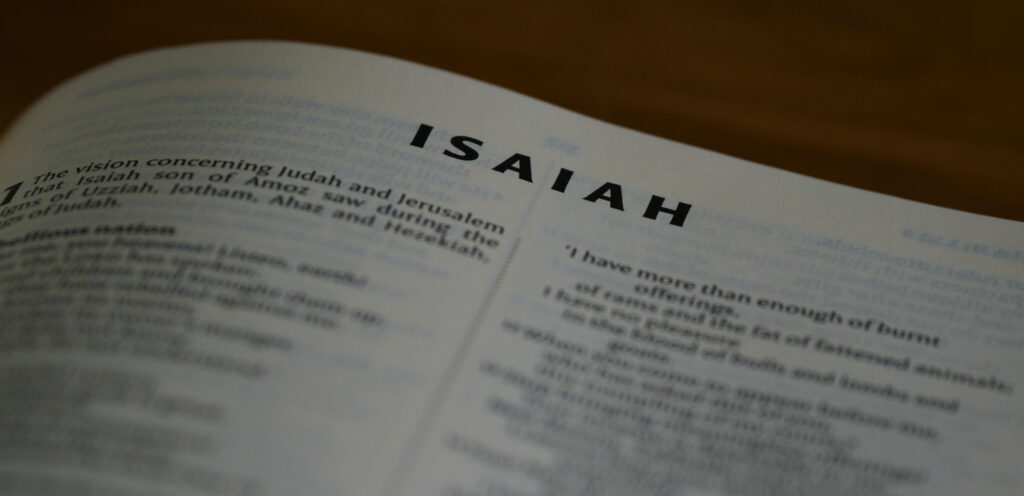I regularly use the YouVersion Bible app on my phone for my daily Bible reading. Mainly because I travel often and it’s always with me. Reading and taking notes on my phone doesn’t require me to pack any additional journals or pens. But also because of the resource that it is.
Not only does the YouVersion Bible app contain the Bible, it has it in several translations! As someone who regularly consults many versions (NIV, FNV, NLT, and MSG to name a few), it would be impossible for me to carry around 4 or more Bibles everywhere I went. Plus, there are several Bible reading plans available (see the ones I’ve contributed to) that I can quickly download. Right now I’m reading a whole-Bible-in-3-years plan and a short, 5-day Christmas plan.
The app also has a feature that I’ll admit I don’t use much–the daily Bible verse. There’s a verse, short teaching, and prayer prompt each day.
But one prompt this week piqued my interest.

It was Isaiah 1:17, “Learn to do right; seek justice. Defend the oppressed. Take up the cause of the fatherless; plead the case of the widow.”
Learn to do right.
Immediately I sat back in my chair and thought what a gift of God that we can learn to do right. That God is willing to teach us, giving us opportunities to learn how to correct our mistakes. How gracious is God!
Learning implies a journey. Just like we learn letters before words and words before sentences. Or how we crawl before we walk, and then finally run. Learning to do right, learning to seek justice, is also a journey. Before we know the actions to take for effective change that defends the oppressed, we must learn who the oppressed are, who the oppressor is, and how they are being oppressed. Living out this verse is a journey.
Learning also means what you knew or did yesterday doesn’t matter anymore because you have new information and actions to adopt today. I’m not talking about consequences here; no matter how much we’ve grown or changed, our past actions often have consequences that move forward with us. But our new actions and opinions are what matters now. The change from “he used to be an oppressor” to “he uses his voice to stand up for the oppressed” can and should be celebrated. This change is the gospel–the old made new, dead made alive, lost made found, evil made good, hopeless made hopeful.
Learning says it’s okay to admit we were wrong and want to change.
This verse also tells us what “right” means, which is another gift. How would we know what to learn otherwise? According to Isaiah here, it’s right to seek justice, to defend the oppressed, and to support the orphan and the widow. We see this same idea in Micah 6:8, “He has shown you, O mortal, what is good. And what does the Lord require of you? To act justly and to love mercy and to walk humbly with your God.” And in James 1:27, “Religion that God our Father accepts as pure and faultless is this: to look after orphans and widows in their distress and to keep oneself from being polluted by the world.”
I’m committed to learning to do right.
Another way to phrase this would be, “I’m committed to admitting how wrong I am.” Or “I’m committed to my own discomfort for the sake of justice.” It’s easy to say, but harder to do. Personally, I don’t have much problem admitting when I’m wrong as long as I’m the one who said so. But when someone else tells me I’m wrong or points out my faults, that’s a true exercise in humility.
Maybe you can relate?
Learning is a gift. It’s an invitation to a better way, whole and healed. Maybe we can commit to learning to do right together?
